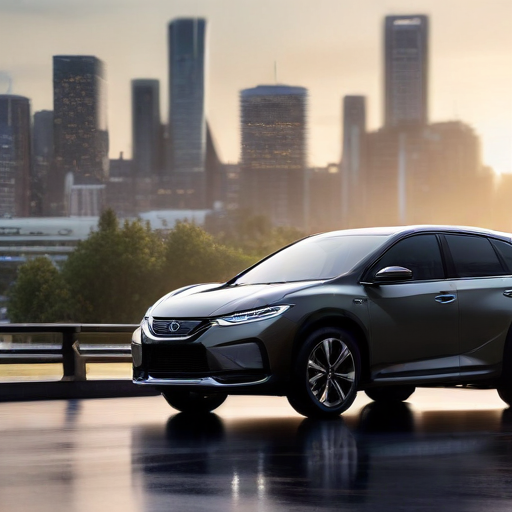Honda and Nissan have entered discussions regarding a merger as the global automotive landscape shifts towards electric vehicles. This proposed alliance aims to create the world’s third-largest car manufacturer by sales, as both companies struggle to keep pace with competitors in the transforming market.
On Monday, the two automakers announced they have signed a memorandum of understanding, and Mitsubishi Motors, a smaller member of the Nissan alliance, is also included in the talks. According to Honda’s president, Toshihiro Mibe, the goal is to unify operations under a joint holding company, with Honda initially steering the new management while preserving each brand’s identity. A formal agreement is anticipated by June, with a complete merger targeted by August 2026.
While no financial details have been disclosed yet, initial discussions indicate considerable challenges ahead. Mibe acknowledged that there are several factors requiring thorough examination, and the likelihood of achieving the merger is uncertain.
This move follows a broader trend as Japanese automakers look to cut costs and enhance their competitiveness, particularly in the electric vehicle sector, where they have fallen behind competitors like Tesla and established players such as Toyota and Volkswagen.
The idea for this potential merger gained traction following reports of interest from Foxconn, which has aimed to partner with Nissan. Should Honda and Nissan merge, alongside Mitsubishi, the combined entity could be valued at upwards of $50 billion. Annual production among the three companies would reach around 8 million vehicles, still trailing behind Toyota’s impressive total of 11.5 million in 2023.
This merger effort comes in light of Nissan’s recent difficulties, including substantial job cuts and management restructures, in response to financial losses and the fallout from the scandal involving former chairman Carlos Ghosn. The shift towards a merger suggests that Honda may be seen as the only Japanese company capable of aiding Nissan in overcoming its challenges.
Industry analysts suggest that this merger could provide Honda access to Nissan’s robust offerings, including large SUVs and electric vehicle technologies, thereby significantly enhancing Honda’s own vehicle development.
Despite Nissan’s recent credit outlook downgrade by Fitch Ratings, the company has substantial cash reserves and its stock has seen fluctuations, with a notable increase following the announcement of potential merger talks. Honda’s shares similarly rose amid these developments, demonstrating market optimism regarding the merger potential.
As these discussions unfold, Japanese government officials emphasize the importance of maintaining competitiveness in the rapidly evolving automotive sector, especially as innovations in battery technology and autonomous driving software become increasingly vital.
In summary, the planned merger between Honda and Nissan represents a significant strategic move within the automotive industry, highlighting a proactive response to ongoing challenges. If successful, it has the potential to create a powerful automotive player capable of competing more effectively in the future. This can be viewed as a hopeful step towards innovation and collaboration, which could ultimately benefit consumers and industry sustainability efforts.
